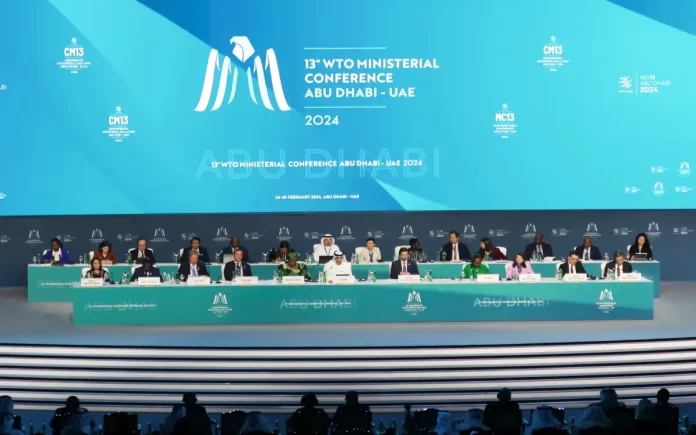Dubai: Tensions escalated during a session at the ongoing WTO ministerial as Thai Ambassador to Geneva, Pimchanok Pitfield, made remarks deemed ‘offensive’ regarding India’s use of Public Stockholding (PSH) for export purposes, sources reported.
India expressed offense at the tone and manner of the comment made during a meeting at the 13th ministerial conference (MC) of the World Trade Organisation (WTO). Sources revealed, “It was the tone used, which was offensive and this remark was followed by members of the Cairns grouping applauding the comment. Bharat took objection to what was said, and the manner, in which it was said.” The Cairns’ agricultural exports account for nearly 30 percent of global agricultural exports.
During a meeting on Sunday, the Agricultural group expressed regret over the WTO’s failure to achieve any substantial reform outcome in agriculture since the decision at the 10th WTO Ministerial Conference in 2015 to eliminate agricultural export subsidies. Despite clarifying that PSH export is not a standard policy, tensions rose when India walked out of a meeting involving the Thai official on February 28. According to the media report, the matter was raised with the Thai ambassador in India, although it is unconfirmed whether an official Demarche was made.
India has taken a resolute stance on the issue, declining to participate in closed-door meetings with the Thai official until the comments are retracted. There was a 20-minute one-on-one meeting between U.S. Trade Representative Katherine Tai and Union Commerce Minister Piyush Goyal last evening. Sources indicate that this matter was also addressed during the meeting.
India’s agricultural and fishing interests are emphasized at the WTO, with the government asserting that food safety and security will not be compromised. India considers the mention of PSH in the outcome document non-negotiable, with the possibility of the Thai foreign secretary flying to Abu Dhabi on February 29 to address the issue. Goyal stated on Wednesday that India plays a crucial role as a consensus builder in the WTO process, but certain countries are undermining that role.
The meeting, which commenced on February 26, addresses issues such as agriculture and fisheries subsidies, dispute settlement, and the moratorium on customs duty levy on e-commerce trade. Goyal emphasized India’s consistent stance, stating, “Our stand is consistent… we have to see who are blocking the issues and who is responsible for not letting things of the WTO smoothly.” He reiterated India’s commitment to fair play and justice at the WTO, advocating for decisions that align with the best interests of India’s farmers and fisherfolk.
“We strongly demand that those who are blocking various decisions at the WTO should start addressing the concerns of the developing countries like India,” Goyal added, highlighting the importance of finding permanent solutions to issues such as public stockholding of food.



